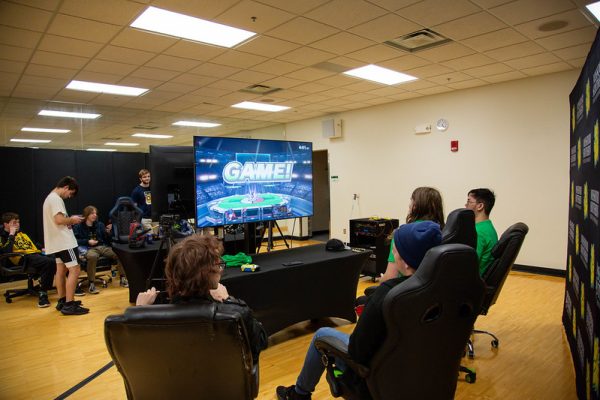Spring time is Project Time
The spring semester is an exciting one for the Engineering Technology department. That’s when Industrial Engineering Technology students have their cumulating experience.
Those are fancy words for applying the education that Engineering Technology students received throughout their studies at Missouri Southern to a real life problem.
If I were to ask students about their projects right now, they probably wouldn’t call it exciting, especially around this time of the semester.
They would more likely call it “scary,” “time consuming,” and sometimes “overwhelming.” After all, they are expected to lead a team of industry professionals at a company to solve a problem they will initially know less about than everyone else on the team.
It’s a little bit scary for me too, as the instructor of that class. Things I am worried about are “will I have enough projects this semester,” “are they good projects which means root cause is not known and solution isn’t obvious,” “will the team dynamic work out,” and will students actually listen to me and follow the problem solving methodology they are supposed to.
In the end, it will all work out. Students will feel good about themselves and have a project to add to their resumes, and some will probably get job offers at the companies they’ll have done the projects at.
I’ll feel proud of our students and the outcomes they will have achieved, and companies will feel good about having collaborated with Missouri Southern; made a difference in student’s education and have solutions to a problem.
This semester’s potential project savings from the nine projects estimate to more than $1.3 million. Not bad for a spring semester activity!
The companies that are sponsoring projects include Eagle Picher Technologies, Heartland Pet Food Manufacturing, Ducommun and Reyco Granning.
All projects are focused on eliminating waste from processes and increasing efficiencies, which is the heart and soul of Industrial Engineering Technology.
Specific project goals include increasing labor efficiencies, reduce scrap rates, reduce changeover times, reduce tool costs and reduce inventory scrap costs.
David Weideman, an IET senior who is doing his project at Reyco Granning shared “I got a feeling about how valuable the information is we learned in class when the engineer at the company who is coaching us got excited about what we already know and can contribute to the project.”
Frank Rodriguez is doing his project at Eagle Picher. He described the project as “It’s like a treasure hunt; you are looking for a solution but in a methodical way.”
Your donation will support the student journalists of Missouri Southern State University. Your contribution will allow us to purchase equipment and cover our annual website hosting costs.




























